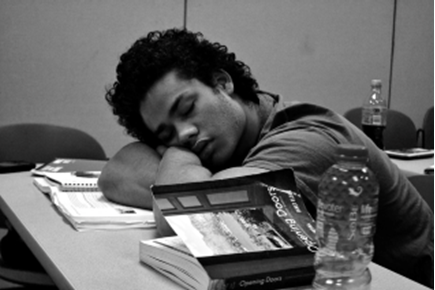9.6: Irregular Preterite Verbs, Part 2
- Page ID
- 44597
The next group of irregular verbs in el pretérito takes a spelling change in the third person singular and the third-person plural forms. These are also known as the “usted/él/ella” and “ustedes/ellos/ellas” forms.
You might think of this group of irregulars as “flip-flop verbs” because they only take spelling changes at the bottom of our conjugation tables. If we draw a circle around them, we can imagine a sandal (instead of a boot, like we saw with present tense stem-changers).
There are two kinds of verbs that behave in this way: -IR stem-changers and –ER and –IR verbs that have a stem that ends in a vowel.

Group 1: -IR stem-changers
If a verb is an –IR stem-changer in the present tense, it is going to be a bit irregular in el pretérito.
First: it only stem-changes in the third-person forms.
Second: it can only change from e to i -or- o to u.
…………………………...
Group 2: -ER and –IR verbs that have a stem that ends in a vowel
If an -ER or –IR verb has a stem that ends in a vowel, we have to do a spelling change down in the “flip flop” in order to avoid having three vowels back-to-back-to-back. It’s all about the sound and flow of these verbs, so we change the “i” in -ió and –ieron to a “y.”
Also, unless the stem ends in a “u,” you’ll see that there are accents in more of the forms than usual. This is because of the way certain vowels interact with each other, but the reasons why this happens are not something we are focusing on in this lesson.
Actividad 18
Foundations. Conjugate the –ir stem-changers below in the preterite tense. Then, fill in the blanks to complete the sentences below.
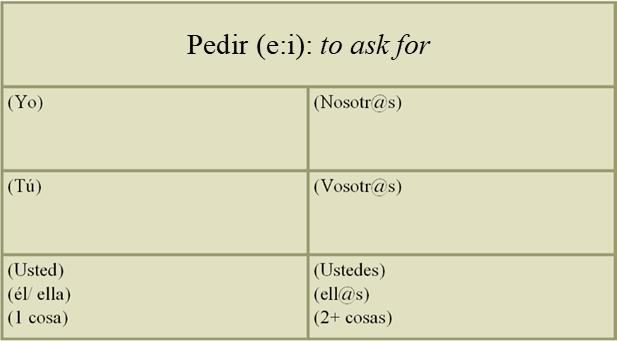

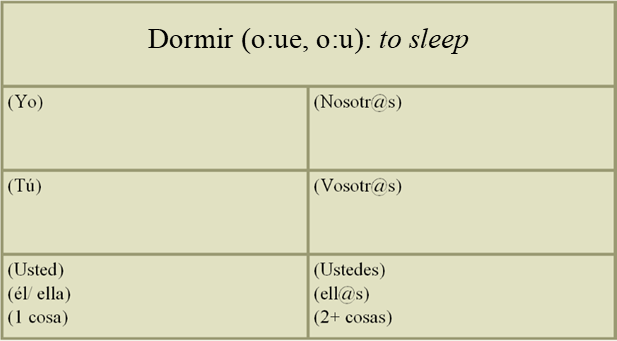

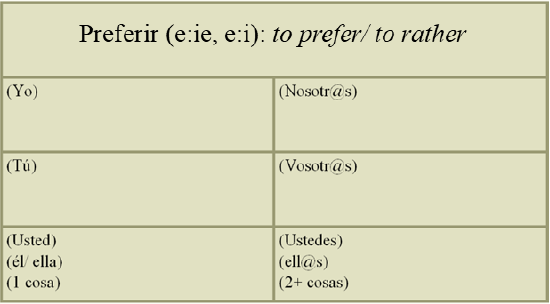

Other common –IR stem-changers include:
repetir (e:i), seguir (e:i), conseguir (e:i), sentir(se) (e:ie, i), servir (e:i), mentir (e:ie, i), convertir(se) (e:ie i), morir(se) (o:ue, u): to die; using the reflexive makes it more emotional
Actividad 19
Sopa de palabras. Use the scattered words below to construct five complete sentences. The subjects and infinitives will be provided. Conjugate, then finish the sentence creatively.

1. ________
2. ________
3. ________
4.________
5. ________
Por ejemplo:
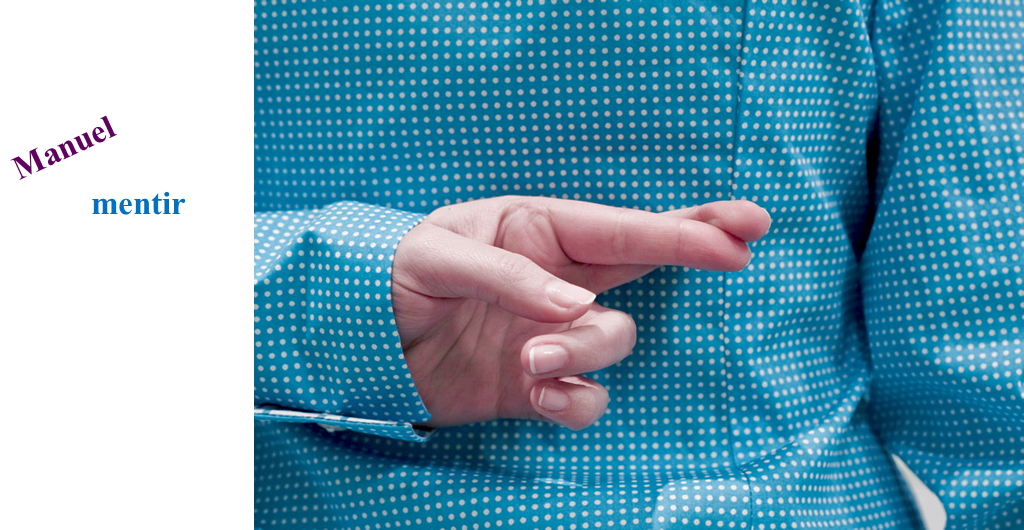
Actividad 20
Foundations. Conjugate the “y changers” below in the preterite tense. Then, fill in the blanks to complete the sentences below.
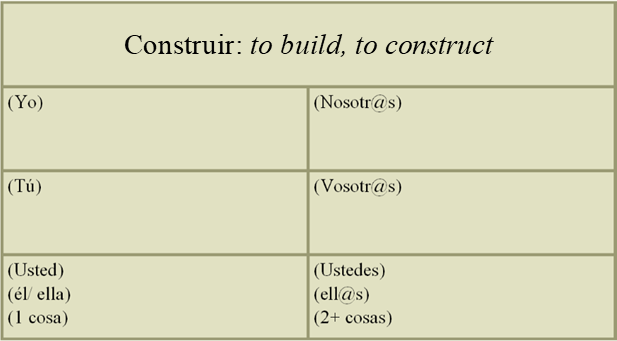

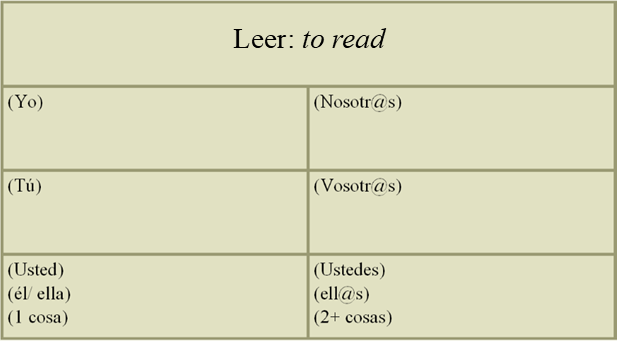
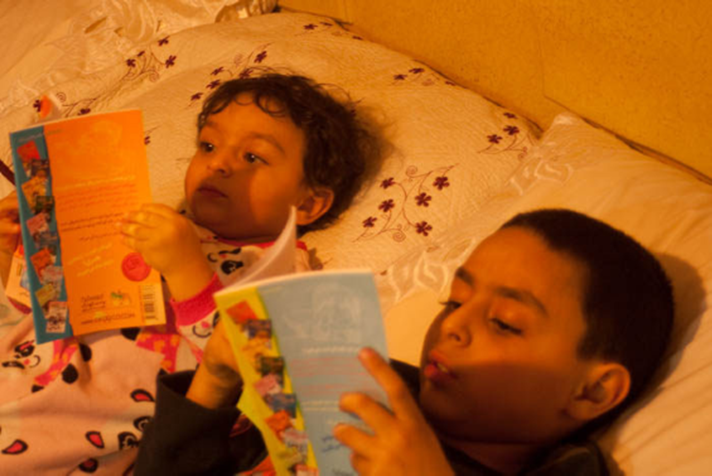
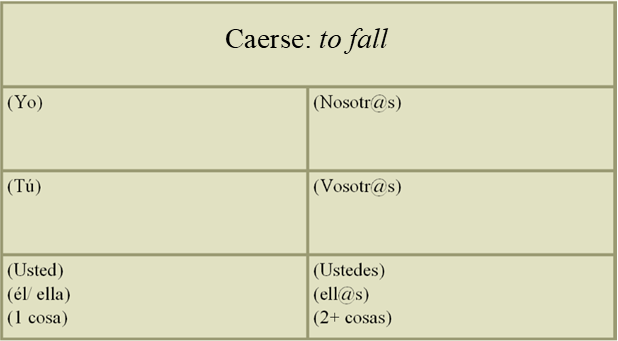
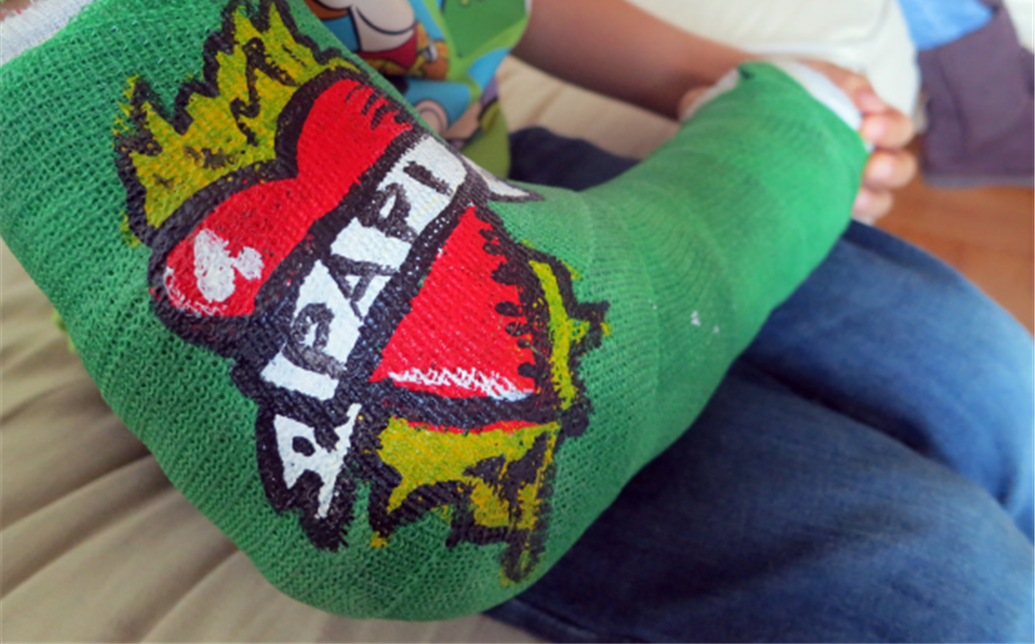
Other common –ER and –IR stem-changers verbs that have stems that end in a vowel are: creer: to believe, destruir: to destroy, incluir: to include, concluir: to conclude & oír: to hear
Exceptions: seguir and conseguir don’t belong to this group because the u is not pronounced.
Actividad 21
Rellenar el espacio. Using –ER and –IR verbs that have a stem that ends in a vowel, fill in the blank with the appropriate form of the verbs provided in el pretérito.
1. La reunión ________ sin un acuerdo* mutuo. (concluir) *an agreement
2. Todos mis parientes son muy trabajadores y talentosos. Mi papá y mi tío ________ nuestra casa hace 15 años, y mi abuelo ________ su casa en el año 1953 después de un incendio que ________ la casa en que vivían antes. (construir, construir, destruir)
3. Esta mañana, yo ________ el periódico. Mi esposo se despertó tarde, y por eso no lo ________. (leer, leer)
4. Yo les dije la verdad a mis padres, pero ellos no me ________. (creer)
5. Jorgito y Carlitos ________ sus libros favoritos antes de acostarse. (leer)
6. La silla que compré en Amazon llegó ayer, pero no ________ instrucciones de esamblaje*. (incluir) *assembly
7. Yo ________ en Papá Noel hasta los doce años. (creer)
8. ¿________ tú ese sonido*? (oír) *sound
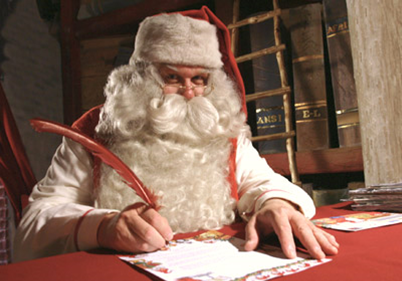
Actividad 22
Submarino. The object of this game is to find the location of you classmate’s submarinos. First, draw four submarinos on your grid and keep them a secret from your partner. To guess a square on your partner’s grid, conjugate the verbs from the top row based on a subject given in the left-hand column. If there is a submarino in that square, your partner will say, “Lo acertaste” (you hit it). If there is no submarino, your partner will respond, “Fallaste” (You missed). Take turns, and keep track of hits and misses on your grid. The first person to locate all four submarinos wins!
|
caerse
|
dormir
|
leer
|
pedir
|
|
|
Yo |
||||
|
Tú |
||||
|
Tu mejor amigo |
||||
|
Nosotros |




